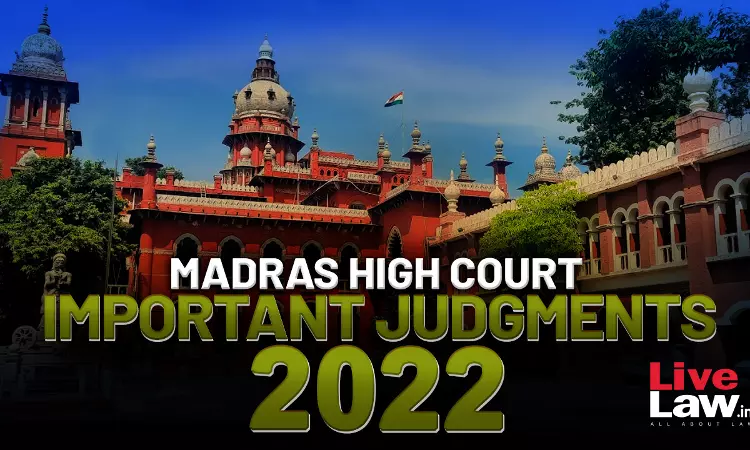- Home
- /
- Top Stories
- /
- Important Judgments Of Madras High...
Important Judgments Of Madras High Court 2022
Upasana Sajeev
3 Jan 2023 5:30 PM IST
LiveLaw reported 525 judgements from Madras High Court in 2022. Here are some of the important decisions:'Right To Relax Can't Be Curbed Fearing Breach Of Morality': Madras HC Disagrees With Another Bench's Direction To Install CCTVs In SpasCase Title: Payel Biswas v. The Commissioner of Police, Trichy City & Ors.Citation: 2022 LiveLaw (Mad) 3While considering a writ petition filed...
Next Story



